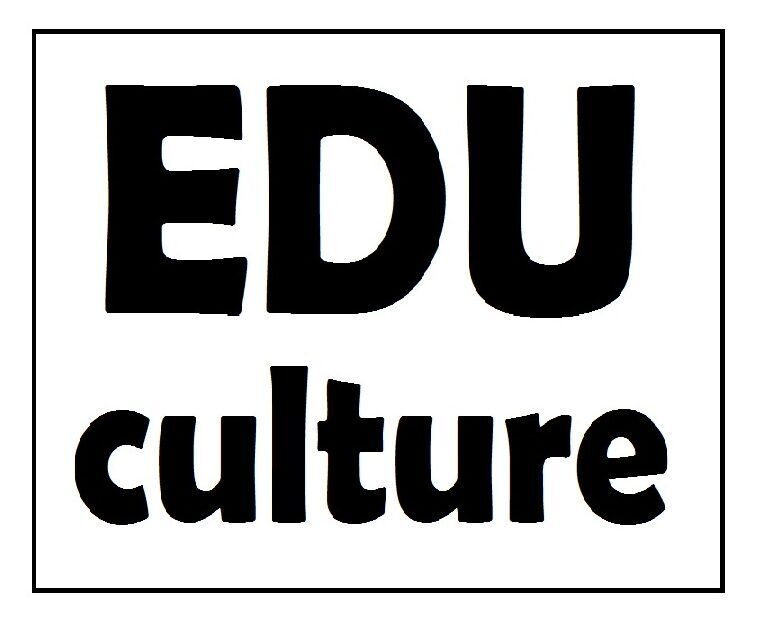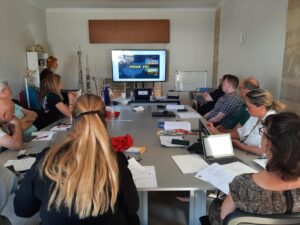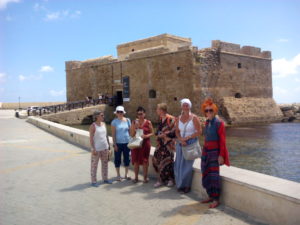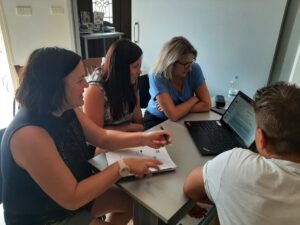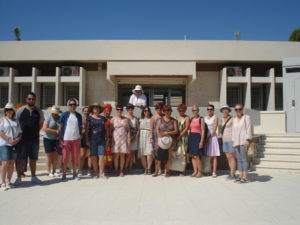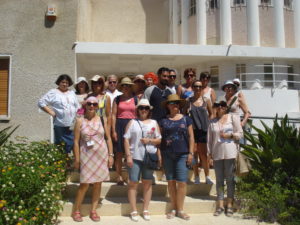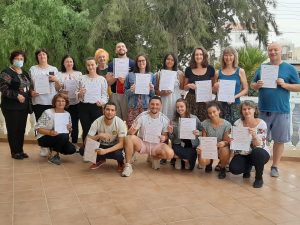INTEGRATING MINORITY, MIGRANT AND REFUGEE PUPILS IN SCHOOLS (6-day/ 7-day course) Limassol
Minorities, migrants and refugees have been increased significantly in the recent years bringing changes in the structure of societies. Their efforts to search for better economic and social opportunities, often force them to cross borders and settle in new areas. The inclusion of minorities, migrants and refugees increases diversity in schools and societies. In this context, societies are responsible to formulate rules and policies. Schools have an important role to play for the integration of minorities, migrants and refugees. Through understanding of, respect for and α productive dialogue between the different groups, schools aim to go beyond passive coexistence, to achieve a developing and sustainable way of living together in multicultural societies.
This 6-day course gives participants theoretical background about the integration of minorities, migrants and refugees in schools, as well as practical guidelines to integrate activities and implement programmes across the areas of the curriculum and school life. Discussions, site visits and group works will enrich sharing ideas and exchange of practice between participants. There is also the possibility to extend the course to 7-day.
Objectives
During the course, participants will:
- discuss issues about migration in Europe & refugee crisis, challenges faced by migrant children, education policies supporting migrant children and dealing with the parents
- discuss issues about Intercultural education (characteristics and models).
- practice activities for team building; cultural awareness and expression; that enhance the sense of belonging and intercultural activities in a multicultural classroom.
- discuss issues about the language of instruction and the home language
- examine ways of managing diversity in classroom and creating inclusive culture in school
- examine best practices & policies for integrating minority, migrant & refugee children
- identify opportunities to integrate intercultural content across the areas of curriculum
- examine the school and classroom planning for intercultural education
- examine the use of ICT tools for classroom communication; for intercultural dialogue; for finding resources
- examine ways about creating a secure and enriching environment for migrant children
- deal with incidents of racism and bullying
- visit sites, museums, monuments etc. and plan activities/ programmes.
Methodology
The working methods that are used are highly practical and participatory. The experiential method is used to encourage the search for contemporary pedagogical theories and teaching approaches. The hands-on approach is used to examine real examples, case studies, surveys and simulations. The group activities foster mutual learning, cooperation and collaboration between participants. The discussions encourage sharing ideas, intercultural dialogue and the exchange of good practices between the participants. Social, networking and cultural activities give participants the opportunity to establish professional cooperation and links with teachers, staff, schools and organisations in Europe. At the end of the course, participants fill in an e-questionnaire for evaluation.
Course schedule
DAY 1
- Migration & refugee crisis
- Dealing with migrant students' challenges
- How do we deal with classroom diversity?
- Migration & Education
- Dealing with the parents
- Education policies supporting migrant children
- ICT tools for classroom communication
DAY 2
- Activities for team building
- Integrating newly arrived migrant students
- Integrating migrant students in school
- Activities for cultural awareness and expression
- The use of ICT for intercultural dialogue
- Early school leaving
- The sense of belonging -Activities that enhance the sense of belonging
- Doing artworks
- Creating a secure and enriching environment
DAY 3
- Visit to Limassol Old city center, Carob Mill Museum, Medieval Castle & Museum and other monuments.
- Doing activities in the city center.
- Data collection for the group work.
DAY 4
- ICT tools for finding resources
- Teaching the language of instruction
- Home language teaching
- Intercultural education
- Models for Intercultural education
- Characteristics of Intercultural education
- Activities that encourage communication
- Globalization and Intercultural Education
- Inclusive education
- Intercultural activities in a multicultural classroom
- Intercultural education in Cyprus
- Activities for integration of migrant pupils at Cypriot schools
DAY 5
- School planning
- Classroom planning
- Celebrating diversity
- Visit at Archaeological Museum of Limassol.
- Visit at Municipal Garden.
- Data collection for group work.
DAY 6
- Activities for Secondary Education
- Facing incidents of racism and bullying
- Participants complete the group work, presentation of group work, review of the course, certificates.
DAY 7 (optional)
-
TOUR TO PAPHOS TOWN
It includes a tour with 5-stops (9:00 am-- 5:00 pm) 5:00 pm)
• Tomb of the kings
• Catacomb of Agia Solomoni
• Paphos Archaeological Park with Roman mosaics
• Paphos Medieval Castle and port
• Petra tou Romiou (The birthplace of Aphrodite).
Course fees
480 euro (6-day) & 560 euro (7-day)
Sessions
-
02.03.2024 - 07.03.2024 Confirmed
27.04.2024 - 02.05.2024
15.06.2024 - 20.06.2024 Confirmed
27.07.2024 - 01.08.2024 Confirmed
26.10.2024 - 31.10.2024 Confirmed
30.11.2024 - 05.12.2024
11.01.2025 - 16.01.2025
01.03.2025 - 06.03.2025
03.05.2025 - 08.05.2025
21.06.2025 - 26.06.2025
02.08.2025 - 07.08.2025
18.10.2025 - 23.10.2025
22.11.2025 - 27.11.2025
